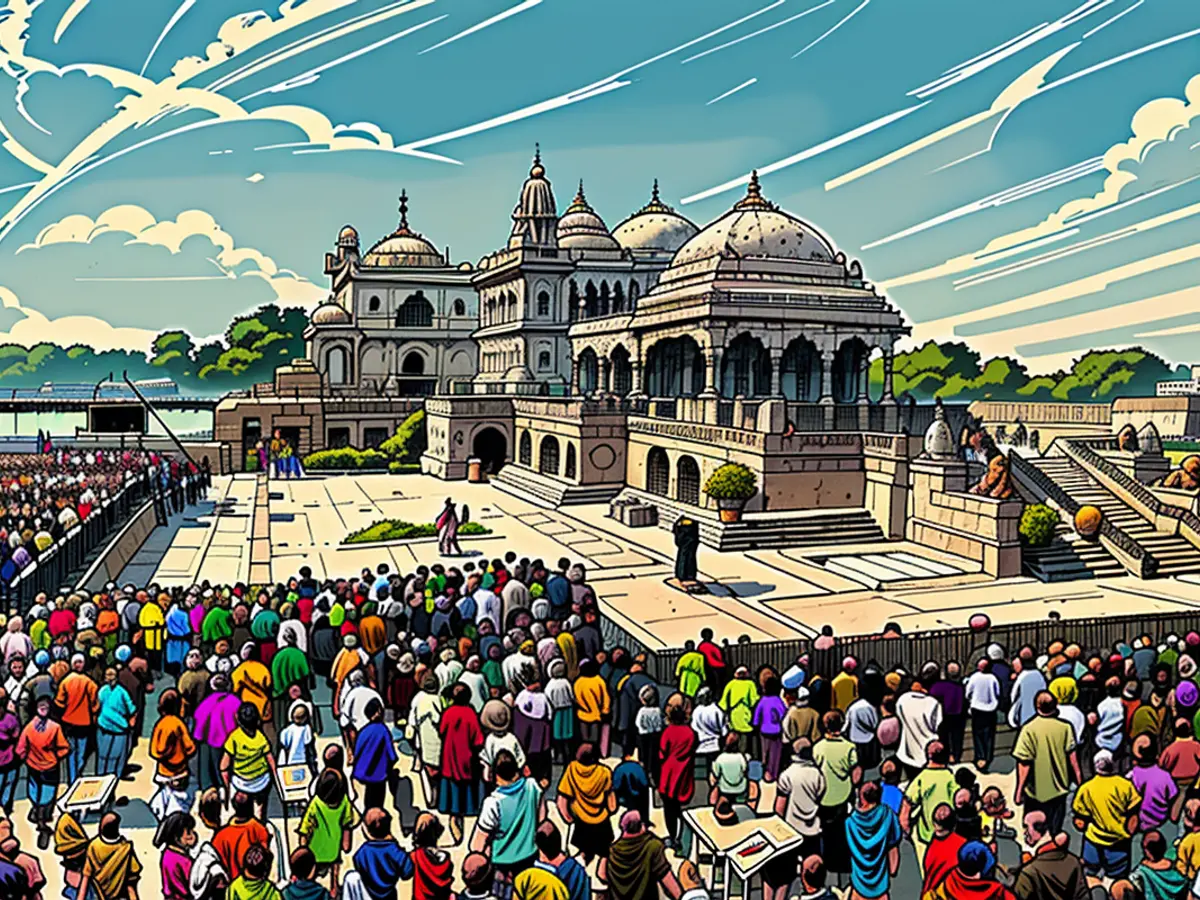Amidst the controversy surrounding a controversial float, an Indian American Muslim organization decides to withdraw from the parade participation.
Imtiaz Siamwalla, head of Indian Muslims in North America, communicated with parade organizers on Saturday, detailing their decision to withdraw their float participation.
"With a heavy heart, we are forced to withdraw due to concerns over the parade's authenticity," the group expressed.
Siamwalla shared with CNN that the plan was to participate in the annual event on Madison Avenue in Manhattan, but they reconsidered following their inability to convince organizers to exclude a controversial float.
The float in question depicts a replica of Ram Janmabhoomi Mandir, a Hindu temple constructed on the ruins of a 16th-century Babri mosque ruins. The mosque destruction incited riots across the country in 1992, leading to the deaths of more than 2,000 individuals, as previously reported by CNN.
"Given that there will be a float depicting the Ram temple, we perceive this as an act of bias against Muslims," Siamwalla stated.
"Politics in India should confine to India," he added. "Upon arriving in America, one becomes an American, embodying values of tolerance and inclusivity. The float should have never been included in the parade."
Siamwalla continued, "The devastation caused by the mob destroying the mosque in 1992 was not a light matter for Muslims."
Not only Indian Muslims have voiced concerns about the float's inclusion. Ajit Sahi, an advocacy director for the Indian American Muslim Council, accused parade organizers of allowing Hindu extremist beliefs to contaminate the celebration of independence and secularism.
"As a Hindu, from the deepest part of my heart, I reject Hindu fundamentalism and extremism," Sahi said.
"Certain Hindus in America and India oppose this temple, recognizing that it brings along politics. This temple is not religion, this temple is not culture," Sahi further clarified.
Siamwalla revealed that the Indian Muslims of North America float was initially designed to highlight the achievements of Muslims, featuring photographs of prominent figures in Indian history and placards with messages such as "Proud to be Indian, Proud to be Muslim," and "Inclusion, Equality, Unity: Muslims strengthen India."
Siamwalla perceived the Ram Mandir float as a political symbol intended to intimidate Muslims attending the parade.
"They aim to show minorities – we can do this in our country, too; this is all for intimidation," Siamwalla stated.
However, parade organizers declined requests to remove the float, explaining that it celebrated the consecration of a significant landmark for hundreds of millions of Hindus, as reported by the Associated Press.
Other groups called upon organizers to exclude the float, considering it an overt politicization of an event meant to celebrate Indian people rather than their politics.
New York City Mayor Eric Adams, who participated in the parade in previous years, is expected to miss this year's celebration. Adams criticized the float's inclusion during an unrelated press conference last week.
"No one should propagate hateful conversations during these parades," Adams said. "If a float or individual promoting hate is present, they should not participate."
Siamwalla expressed to CNN that despite their initial plan to participate, they couldn't support the parade due to their inclusion of a controversial float related to the Ram Janmabhoomi Mandir, which has historical and emotional significance for Muslims. Given the float's presence, they felt it was an act of bias against their community, and as Americans, they believed in values of tolerance and inclusivity.








